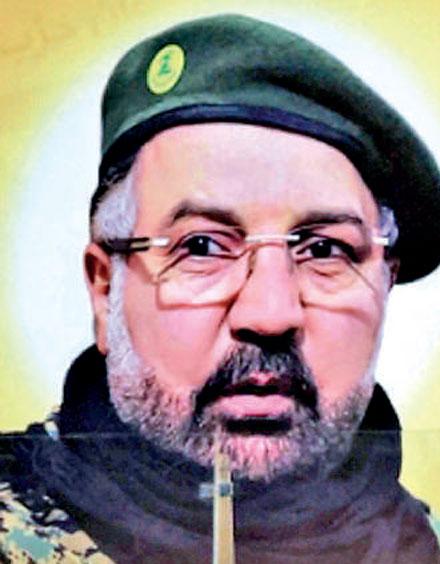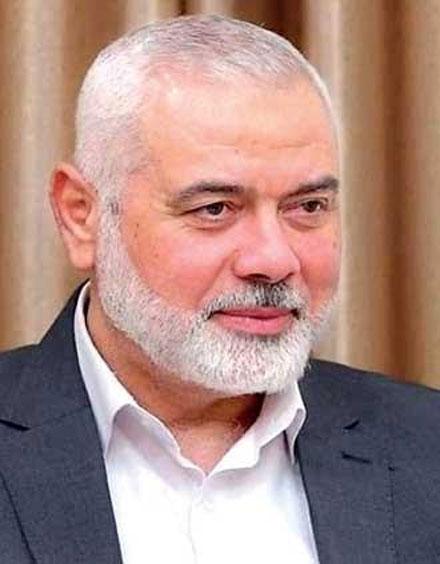Reply To:
Name - Reply Comment
Former Hezbollah Senior Commander, Fuad Shukr Former Hamas Leader, Ismail Haniyeh

| The situation remains highly volatile, with the risk of retaliatory actions and further violence threatening to destabilize the Middle East |
 On August 6 and 9, 1945, exactly 79 years ago, the US dropped two deadly nuclear bombs, ‘Little Boy’ and the 11-foot ‘Fat Man’, on Hiroshima and Nagasaki respectively.
On August 6 and 9, 1945, exactly 79 years ago, the US dropped two deadly nuclear bombs, ‘Little Boy’ and the 11-foot ‘Fat Man’, on Hiroshima and Nagasaki respectively.
Albert Einstein observed, “I know not with what weapons World War III will be fought, but World War IV will be fought with sticks and stones”.
This poignant statement highlights the catastrophic potential of a third world war, suggesting it could lead to the total destruction of ‘Earth’, reducing humanity to a primitive state for any subsequent conflicts. As tensions rise globally, the dire warning of such devastation underscores the urgent need for peaceful resolutions.
Following the assassination of Hamas leader Ismail Haniyeh, the French Foreign Ministry has advised all French nationals currently in Iran to depart ‘as soon as possible’ because of the ‘increased risk of military escalation in the region.’ In reaction to Haniyeh’s death, Hamas has declared a ‘day of anger.’ The region is now facing an increased threat of a broader conflict involving Israel, Iran, and their proxies. The situation was further aggravated by the killing of Hezbollah senior commander Fuad Shukr in an Israeli strike near Beirut on Tuesday. Both Iran and Hamas have blamed Israel for Haniyeh’s targeted assassination in Tehran.
Haniyeh, has long been a key player in the Israeli-Palestinian conflict, advocating for Palestinian rights and resistance against Israeli occupation. The incident has raised concerns among international observers about the potential for broader regional instability, involving not only Israel and Palestine but also Iran and its allies in the region. The situation remains highly volatile, with the risk of retaliatory actions and further violence threatening to destabilize the Middle East.
The C-130 military transport plane banks over the Mediterranean, and the pristine blue sea below transforms into the dusty, pockmarked terrain of Gaza. As the back of the plane opens for a humanitarian aid drop, the Jordanian Royal Air Force’s pallets and parachutes are prepared for release. Through a small side window, a rare and stark view of the ravaged Strip emerges, showing the extensive damage from carpet bombings and urban warfare. This brief yet illuminating view highlights the grave situation in Gaza—a narrow strip of land roughly a quarter the size of London, where two million people remain confined. Ten months after the invasion triggered by the October 7 terror attacks, the true extent of the Strip’s plight remains largely unknown, with foreign journalists restricted to controlled tours by the Israeli army. Nevertheless, aerial perspectives clearly reveal the extensive devastation, underscoring the profound impact of the ongoing conflict on this Palestinian territory.
The meeting in Tehran will include representatives from Hamas and Islamic Jihad, as well as Yemen’s Houthi movement, Lebanon’s Hezbollah, and Iraqi militias, all of which are aligned with Iran. Sources, who requested anonymity due to the sensitive nature of the discussions, indicated that the meeting will focus on coordinating responses to recent events.
Oppenheimer, who won the Enrico Fermi Award, and Albert Einstein, widely regarded as the greatest scientist ever, were responsible for the Manhattan Project (directly and indirectly, respectively) —a highly secretive and unprecedented World War II program in which the US raced to develop and deploy the world’s first atomic weapons before Nazi Germany. Despite their pivotal roles, both were criticized as ‘criminals’ by certain peace forums of the time. The bombings led to unprecedented devastation, resulting in the loss of hundreds of thousands of lives.
As a Jewish scientist, Einstein faced Nazi racial discrimination and renounced his German citizenship in 1933, relocating to the United States. In 1939, three scientists wrote a letter to President Roosevelt, alerting him to Hitler’s efforts to develop nuclear fission and its potential dangers, and urging the need for an urgent program to counter these threats. They persuaded Einstein to sign the letter to lend additional credibility to their warning… As Malcolm X famously said,‘Sometimes you have to pick up the gun to put the gun down.’
Einstein signed the letter to raise a crucial warning and help prevent a catastrophic outcome should the Nazis win the race to develop nuclear weapons. In response, Churchill and Roosevelt swiftly assembled a team and established the Manhattan Project at a secret location in Mexico, with Professor Bainbridge leading and Oppenheimer overseeing operations.
Iran to convene with Proxy Leaders to discuss retaliation against Israel. The Islamic Republic’s Supreme Leader and senior members of the IRGC (Islamic Revolutionary Guard Corps) met in Tehran with representatives from the Palestinian Islamic Jihad (PIJ), Hamas, the Houthis, and Iraqi militias to discuss an impending retaliation against Israel.
The ‘Fat Man,’ which had the explosive power of 21,000 tons of TNT and was fueled by plutonium, was more destructive than the ‘Little Boy,’ which used uranium-235 isotopes. ‘Fat Man’ was dropped on Nagasaki on August 9, detonating 1,650 feet above the city. The blast killed 70,000 people instantly and led to a total of 143,000 deaths within four months.
At present Arms control has become outdated. Russian and U.S. leaders dismiss treaties as impediments to their freedom of action. Previously, arms control provided essential safeguards. Currently, dangerous military practices are increasing, especially in Ukraine and the Taiwan Strait. U.S.-Chinese relations are approaching crisis, and four nuclear-armed states in Asia — China, Pakistan, India, and North Korea — are expanding their arsenals. Every nuclear-armed competitor is relying more on deterrence, as arms control diplomacy stalls. If these trends continue, they could lead to tragedy.
National leaders will again pursue arms control, driven by the same reasons as their predecessors. They will recognize that increasing limitation measures heightens nuclear dangers and that diplomacy is essential to diminish them. A major crisis might be necessary for US, Russian and Chinese leaders to embrace diplomacy, as Kennedy and Khrushchev did after the Cuban Missile Catastrophe. Reagan’s progress with Gorbachev began in 1983, when he realized Soviet leaders feared an impending destruction. Ultimately, nuclear-armed rivals will understand, like Kennedy, Khrushchev, Reagan, and Gorbachev, that avoiding nuclear war requires more than just deterrence. Diplomacy and arms control are crucial to complement restriction.
Let us remember George Bernard Shaw’s insightful remark: “We cannot help it because we are so constituted that we always believe finally what we wish to believe. The moment we want to believe something, we suddenly see all the arguments for it and become blind to the arguments against it. The moment we want to disbelieve anything we have previously believed, we suddenly discover not only that there is a mass of evidence against, but that this evidence was staring us in the face all the time.”